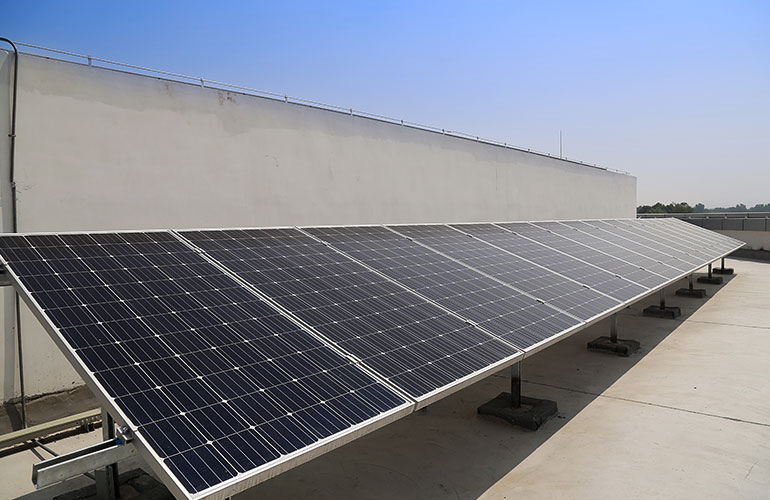
Product Details
Solar on-grid and off-grid systems are two distinct types of solar power systems that offer different functionalities and are designed to meet specific energy needs. Here's an overview of each system:
Solar On-Grid System:
A solar on-grid system, also known as a grid-tied system, is connected to the local electrical grid. Here are some key features:
- Grid Connection: The solar panels generate electricity from sunlight, which is then converted to usable AC power through inverters. This AC power is directly fed into the electrical grid.
- Net Metering: The on-grid system allows for net metering, where any excess electricity generated by the solar panels is fed back into the grid, and the owner receives credits or compensation from the utility company.
- Cost Savings: By offsetting energy consumption from the grid with solar-generated electricity, on-grid systems can significantly reduce electricity bills, resulting in long-term cost savings.
- Reliance on the Grid: On-grid systems do not store excess electricity, relying on the grid for power supply during nighttime or periods of low solar generation. They do not provide power backup during grid outages.
Solar Off-Grid System:
A solar off-grid system, also known as a standalone system, operates independently of the electrical grid. Here are some key features:
- Energy Storage: Off-grid systems include batteries to store excess solar-generated electricity for later use when sunlight is not available. These batteries supply power during nighttime or when the solar panels cannot meet the energy demand.
- Autonomy: Off-grid systems are self-sufficient and provide electricity even in remote or rural areas where grid connection is unavailable or impractical. They offer energy independence and can be customized to meet specific power requirements.
- Backup Power: The battery storage in off-grid systems serves as a backup power source during extended periods of low solar generation or grid outages.
- Higher Initial Investment: Off-grid systems generally require a larger upfront investment due to the inclusion of batteries and additional components for energy storage and power management.
- Suitable for Remote Areas: Off-grid systems are ideal for locations far from the electrical grid, such as cabins, remote houses, or off-grid installations like telecommunication towers and rural electrification projects.
It's important to consider the specific energy needs, location, and budget when choosing between on-grid and off-grid solar systems. On-grid systems offer cost savings and reliance on the grid, while off-grid systems provide energy independence and backup power capabilities. Consulting with a solar energy professional can help determine the most suitable system for individual requirements.
Specification
Solar High-mast light
- Capacity: As per customer need.
- Warranty: 2 to 5 years.
- Model: On Grid/Off Grid
Product Warranty
Product Installation Services
Customization and Adaptability
Easy Installation Guide
Research and Development: These companies invest in research and development to stay at the forefront of solar technology advancements. Our track record of developing new products, improving existing ones, and incorporating the latest solar innovations into their offerings.
Quality Assurance: Experienced solar product manufacturers prioritize quality control at every stage of the manufacturing process. We have rigorous testing procedures to ensure that our products meet or exceed industry standards, certifications, and customer expectations.
